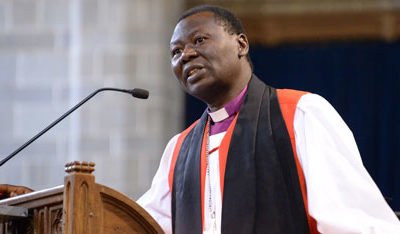Palm Sunday confronts us with contradictions. We see admirable devotion by the owner of the donkey who willingly released his property for the Master’s use; we see the crowds who, for the moment, spread their cloaks on the road, and others who cut branches from trees and spread them on the road;

then we also see those who shouted “Hosanna to the Son of David! Blessed is he who comes in the name of the Lord! Hosanna in the highest!” (Matt. 21:9). Luke’s account tells of a strange reaction as Jesus approached the city: “And when he drew near and saw the city, he wept over it, saying, “Would that you, even you, had known on this day the things that make for peace! But now they are hidden from your eyes.” (Luk. 19:41–42) He saw through the façade of the beautiful city and the religious ceremonials.
Jesus entered the temple which should have been the place of worship. What He found was the detestable betrayal of divine intention by the operators of the temple worship. The reverberation of the Hosannas was drowned by the noise of the marketplace. It was like a confrontation between heaven and hell. The temple was to have been the natural place for chanting the Hosannas, while the streets outside should have been the marketplace. We see rather, a strange exchange. There was noise, but it was the repulsive noise of hagglers: bureau de change operators and pigeon sellers: anything but the chant of worship Psalms either by natives or pilgrims. And there was the stench of animal droppings rather than the incense of prayers ascending to heaven. It was outrageous and heart-breaking.
There was only one option: dismantle the structures of the usurpers. “He said to them, “It is written, ‘My house shall be called a house of prayer,’ but you make it a den of robbers.” (Matt. 21:13). Jesus chased them out. For the religious authorities, Christ’s action was a serious affront; but for heaven, the scenario was intolerable bastardization.
Palm Sunday begins the Passion of Jesus as it leads us into the Holy Week and the Cross on Good Friday. It probes our devotion beyond the decoration of our places of worship and the carrying of palm branches in our processions. Heaven listens to the Hosannas, but also looks into our priorities in worship as individuals and parishes. Is heaven rejoicing to deploy angels to join in our singing of Hosannas, or is there a lament from heaven over the compromises, contradictions, and religious clutter that must be abhorrent to God?
When we set up our alternatives to God’s stated intentions for worship, we risk judgment that could be expressed either in the form of the forfeiture of the ark (1 Sam. 4:21) or the departure of the glory of God from the temple as in Ezekiel’s vision (Ezek. 10) or in the form of this chastisement, by the Lord Himself, of those who defiled the temple, or even by the removal of lampstand as in the letters to the churches in Revelation. Whichever way it is, it cannot be pleasant.
If there is anything that we must seriously consider putting right on this Palm Sunday that leads us in the journey to the Cross where our atonement was secured, it is the state of our hearts and our worship. God grant that our Hosannas will transcend and overshadow our alien structures that make the house of God what He never intend for it to be. May His glory return to His people. Amen.
By Most Rev Emmanuel A.S. Egbunu





